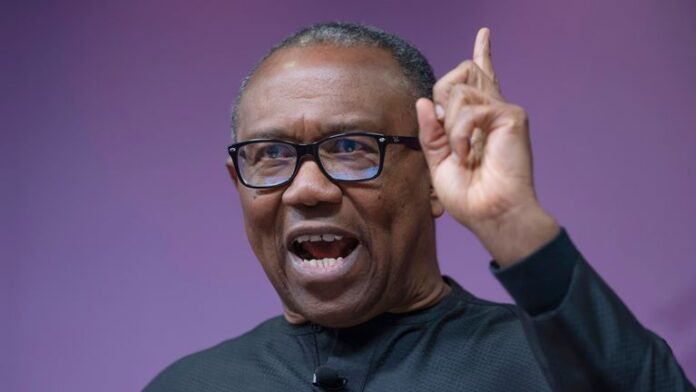Former presidential candidate of the Labour Party, Mr. Peter Obi, has strongly criticised the Federal Government’s decision to impose a new 5% tax on all refined fossil fuels, including petrol and diesel, describing it as another burden on already struggling Nigerians.
Obi, who contested in the 2023 presidential elections, made the statement on Wednesday night via a post on his official X (formerly Twitter) handle. He accused President Bola Ahmed Tinubu’s administration of worsening the economic hardship faced by millions of citizens.
According to Obi, the introduction of the new tax shows a lack of sensitivity by the government at a time when many Nigerians are grappling with high inflation, unemployment, and rising cost of living.
“Nigerians will now pay a 5% tax when buying fuel or diesel, basic products they use every day at a time when millions can hardly even afford transportation,” Obi wrote.
He pointed out that the alternative fuel source, Compressed Natural Gas (CNG), which was promised by the government as a cheaper and more stable option, has also become too expensive for ordinary Nigerians. The price of CNG, he noted, has risen from around ₦230 to ₦450, and the promised subsidies on it “have quietly vanished.”
“Even the so-called alternative, CNG, has become unaffordable,” he said.
Obi further questioned the government’s spending priorities, especially after President Tinubu recently boasted that Nigeria had met its revenue target for the year.
“If our revenues are truly ‘excessive’ as claimed, should they not first be used to fund education, healthcare, and pulling Nigerians out of poverty? Why tax citizens who cannot even breathe anymore?” he asked.
Since taking office in May 2023, President Tinubu has implemented several major economic reforms aimed at boosting government revenue and reducing Nigeria’s debt. These include the removal of fuel subsidy, the floating of the naira, and a drive to expand the country’s tax base.
However, many of these policies have led to sharp increases in the prices of fuel, food, and transport, with inflation reaching its highest point in over a decade. Nigerians across various sectors have complained of worsening economic conditions, and labour unions have staged protests demanding relief measures.
The latest move — a 5% excise duty on all refined petroleum products was quietly introduced as part of the Federal Government’s strategy to boost its non-oil revenue.
But critics argue that the policy was ill-timed and poorly communicated, coming at a period when most citizens are already under financial strain.
Obi advised that instead of introducing more taxes, the government should focus on using existing revenues to directly improve the lives of Nigerians. He said areas like education, healthcare, and social safety nets should be the first priority, not new taxes.
“People are suffering. What they need is relief, not more pain,” he said.
This is not the first time Obi has spoken out against the Tinubu administration’s economic policies. Since the 2023 elections, the former Anambra State governor has remained vocal about national issues, especially those affecting the poor and middle class.
As Nigerians continue to feel the pinch of rising costs and dwindling purchasing power, Obi’s latest comments are likely to strike a chord with many who feel abandoned by the government.

